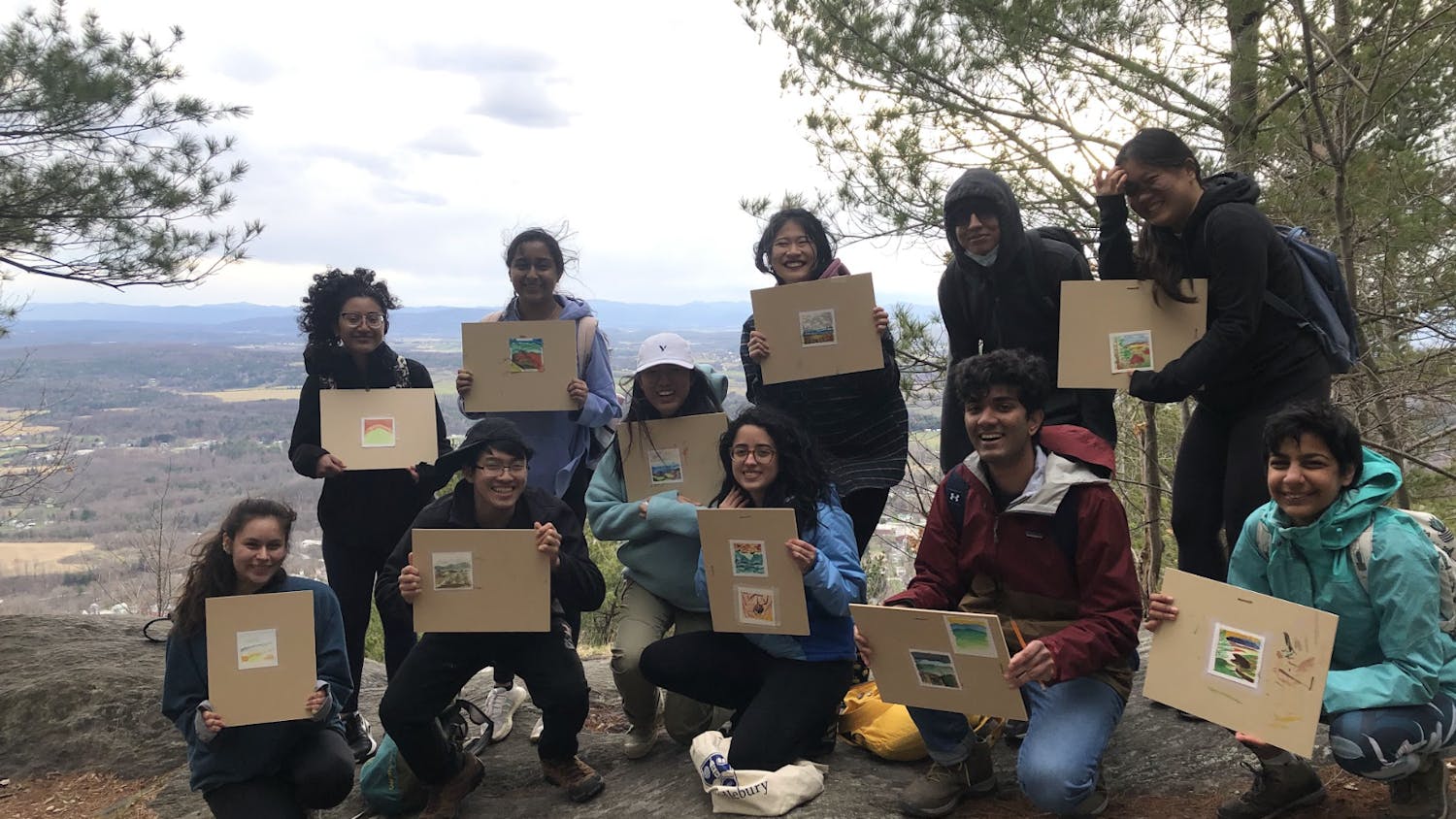While Middlebury is testing less than other NESCAC schools, the college’s Covid-19 prevention plan is comparable to other schools in Vermont.
Vermont college students arrived in early September eager for the start of a new academic year. Following a year and a half of limited socializing and strict safety precautions, many were more than ready for a return to pre-pandemic life. Students’ expectations of this so-called “return to normalcy” remained relatively high throughout the summer as a result of increasing vaccination rates and relaxed Covid-19 restrictions across many states.
In early August, Middlebury College issued an email detailing the Covid-19 protocols for the fall 2021 semester. Although the email described the Middlebury community as “mask friendly,” it did not institute any formal limits on gathering sizes or maskless interactions.
A few days later, in light of the rise in Covid-19 cases as a result of the spread of the Delta variant, a second email was circulated outlining stricter safety protocols. The second email emphasized the necessity of protecting students, faculty and staff at the college, as well as the inhabitants of the town itself. In order to achieve these goals, masks were to be worn indoors, as was the case in the fall 2020 and spring 2021 semesters.
This retreat to more stringent Covid-19 restrictions paralleled a similar trend nationwide. Many colleges in the country had re-mandated masking indoors by the middle of August. At this point, Middlebury’s policies were in line with the majority of these institutions.
Another facet of pandemic-era campus safety varies more noticeably among schools: testing policies. Although the other NESCAC schools have more robust testing plans in place than Middlebury does, Middlebury’s plan remains comparable to those of other Vermont institutions.
Middlebury is the only NESCAC school not testing all students at least once per week, with most schools testing all students once or twice per week.
Only symptomatic students and unvaccinated individuals, travelers and in-season varsity athletes are being regularly tested at Middlebury. Students who feel unwell are advised to get themselves tested.
“A limited number of test slots are available for asymptomatic students each week,” said Media Relations Director Sarah Ray, speaking on behalf of the Parton Center for Health and Wellness.
At the University of Vermont (UVM), an institution four times the size of Middlebury, tests are also available for the student body. “Fully vaccinated students may test if they wish to do so. We continue to see a relatively small number of SARS-CoV-2 cases on our campus,” said Enrique Corredera, UVM Public Relations representative.
UVM has adopted Covid-19 prevention policies consistent with those enforced at Middlebury. All students, apart from those with religious or medical exemptions, were required to obtain the vaccine before returning to campus this fall. Exempt students living on campus must comply with weekly testing procedures.
The UVM community expects to continue seeing positive cases due to the Delta variant, but Corredera maintains a positive outlook on the long-term situation.
“Thankfully, we also know that vaccines remain very effective at preventing severe Covid-19,” he said.
Other Vermont colleges have implemented policies analogous to those seen at Middlebury and UVM. The Covid-19 vaccine is also required at both St. Michael's college and Champlain College this fall. Similar to Middlebury, neither school is enforcing surveillance testing, although symptomatic students may request tests. Unvaccinated members of the college community must undergo periodic testing, solidifying this rule as a constant among the four institutions.
According to Ray, if Middlebury were to see an uptick in Covid-19 cases in the coming weeks, the college would respond by making adjustments to its prevention policies. The college’s contingency plan accounts for the severity of the outbreak and includes the possibilities of expanding testing protocols, limiting travel to Addison County or the state of Vermont and/or implementing a campus-wide quarantine for a period of time, Ray said.
“[The college is] prepared to ramp up testing even further in response to increased prevalence of Covid-19. But we know that the best current course of action is for all students, faculty and staff to follow the protocols in place to prevent an outbreak,” Ray said.
A recent advisory to faculty, staff and students provided an updated set of guidelines for Covid-19 prevention this fall.
“Our focus is on prevention and asking students, staff and faculty to make decisions that help keep them and our campus community healthy,” said Dr. Mark Peluso, chief health officer and college physician.
Middlebury testing and Covid-19 safety policies fall in line with other Vermont schools

Comments



